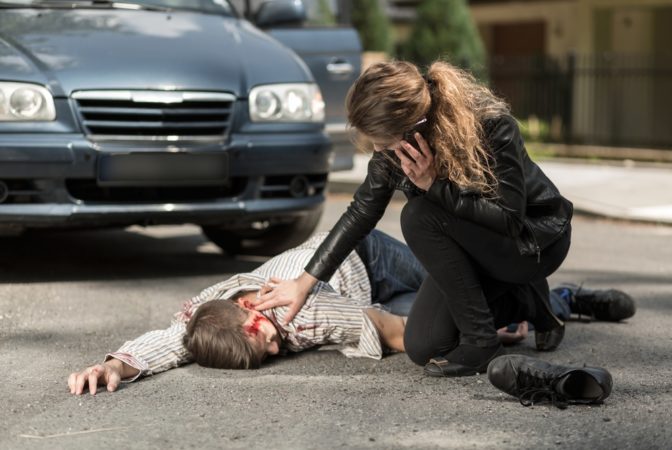Robbery and burglary allegations can have serious implications for your personal and professional life. The consequences of being charged with robbery or burglary can be far-reaching, and you may need support with your family arrangements, professional commitments, and your mental health.
Getting advice from expert robbery and burglary solicitors, who have extensive experience in these matters and are able to advise you on the best possible strategy – whether or not your case goes to court – is critical.
As with any criminal case, taking action early is paramount. Without professional legal advice from a robbery or burglary solicitor, you may be left in the dark about how best to proceed with your case, and with your daily life. By getting that advice early on, you are able to prepare yourself for what might come and begin compiling a defence that may help you avoid punishment or sanction altogether.
Throughout this guide are numerous questions that might be buzzing around in your head. Our support and information can be used to plan your first steps, but you need to arrange professional legal advice on your next moves if you are intending to defend any charges against you.
Have you been arrested or charged with a robbery or burglary offence?
If you or someone you care about has been charged or arrested with robbery or burglary offences, acting quickly is critical. You are no doubt feeling worried and upset and are anxious about potential outcomes.
In this instance, getting advice from a reputable robbery and burglary solicitor in London is critical for your defence. You may face many accusations; many of which may not be true. Get in touch with us today to see how we can help in clearing your name before the case progresses and the impact of these allegations have a chance to affect your life.
What should I do if I am arrested or charged with a robbery or burglary offence?
The first thing to do in any interaction with the police or other law enforcement or judicial professional is stay calm. The calmer you are throughout the investigation and any questioning, the more likely it is that the case will be resolved expeditiously and in your favour.
As soon as you are able to, contact an experienced and highly rated robbery and burglary solicitor. Getting advice early in your case can make all the difference. You will be able to ask for advice on any questions or dilemmas you may have, and you can proceed with the peace of mind of knowing you have a qualified criminal defence expert in your corner.
Remember, you don’t have to answer any police questions without your lawyer present.
What type of actions are considered a robbery and burglary offence?
Below are some examples of robbery and burglary offences that may lead to you being charged or arrested for such offences:
- Opportunistic robbery – for example, seeing that someone is distracted while walking down the street with their phone out, and wrestling it out of their hands as you run past them in the opposite direction.
- Carjacking – for example, pushing someone out of the way of their car as soon as they unlock the doors, taking their keys, and driving the car away.
- Armed robbery – for example, taking a weapon into a jewellery shop and threatening the staff with violence if they do not fill up bags of jewellery for you to take.
- Domestic burglary – for example, picking the lock on someone’s backdoor at night and gaining entry to the house, removing obvious valuables, and then leaving the scene of the crime.
What happens during a robbery or burglary investigation?
Being involved in a robbery or burglary investigation is stressful, and you may feel like every area of your life is being invaded by police and other officials. Aside from the disruption, you are also likely experiencing legitimate concerns that any such investigation may impact your family, social, and professional lives as well.
It is not uncommon for police to question you about the events of the day (either by asking you to attend the police station voluntarily for questioning or by arresting you), and it is pretty common that the police will search your house, car, storage units, and even workplace to see if you are hiding stolen goods or concealing other evidence that might link you to the crime.
Staying calm and co-operative, without giving away too many details about your life or whereabouts on the day or night in question, is the first step in handling any robbery or burglary investigation. Even if you have done nothing wrong, you need to be careful about what you say to the police so as to avoid any situations that might implicate you.
Getting expert advice from a robbery and burglary solicitor is the second step. Finding a robbery and burglary solicitor in London can be tough, but once you know the right team to contact, you can rest assured that your case is being taken care of professionally.
Can the police search my home for a robbery or burglary offence?
The short answer is, ‘Yes. The police can search your home for robbery and burglary offences.’ There are official procedures that the police have to go through to have permission (legally) to search your home, but that is often not difficult for them to obtain if they believe that you may be connected to a crime.
Depending on the severity of the alleged crime and the legal permissions that officers have received, the police may do a single search of your home, repeated searches, or they may place you and your family under investigation (sometimes, without you even knowing about it).
Moreover, they may search your online life as well as your physical life, which means they could search your email accounts, social media accounts, and any other communications tools like WhatsApp, Messenger, Instagram, and Snapchat. It is much tougher for the police to obtain messages if they are from encrypted apps (like Telegram or Snapchat), but that does not mean they will not take your phone and other electronic devices away for inspection during an investigation.
Could I go to prison for a robbery or burglary offence?
Thousands of people across Britain are in prison because of robbery and burglary offences. Punishments for robbery and burglary can be severe, especially if violence was used or vulnerable people (children, the elderly, or adults with disabilities) were involved.
If you were involved in the crime with a group, you could be charged with conspiracy to commit robbery or burglary, which is another serious offence with its own sentencing guidelines.
What is the typical sentence for a robbery or burglary offence?
Typically, robbery and burglary sentences are harsh. This is because these offences can be extremely distressing for those falling victim to such crimes, and incredibly damaging in terms of financial and sentimental loss from stolen items.
Robbery carries a maximum sentence of life imprisonment, and burglary carries a maximum sentence of ten years’ imprisonment, unless the offence was carried out in someone’s home, in which case it is 14 years’ imprisonment, and unless the offence was carried out with an offensive weapon, in which case it is life imprisonment.
What defences can be used for a robbery and burglary offence?
If there is a strong body of evidence against you (for example, conclusive CCTV evidence showing your face and/or any distinguishing features at the scene of the crime, or in commission of the crime), compiling a defence can be difficult.
That said, if you have an experienced criminal defence team behind you, you can readily compile a defence in any of the following circumstances:
- You were intoxicated involuntarily. If you were involuntarily intoxicated (for example, if someone spiked your drink or otherwise administrated drugs to you without you knowing), you might be able to rely on the defence of involuntary intoxication. This defence works because it proves you were unable to form the necessary mental intent to commit the crime.
- You were entrapped. Sometimes, you may be ‘set up’ or entrapped and that entrapment causes you to commit such a crime. This occurs especially with those who are vulnerably to persuasion for one reason or another (their young or old age, being subject to a powerful person’s influence, being subject to intense financial pressure, and so on). On these occasions, you may be able to prove that you would not have committed the offence otherwise.
In addition to these special defences, there are several general defences that also apply to robbery and burglary offences and that may be critical in compiling your defence.
What mitigating factors may be considered for a robbery or burglary offence?
Again, as with other crimes, there are certain factors that a judge may look at that help the court to conclude that, while you did commit the crime (whether you plead guilty or you were proven otherwise to have done so), you should not be punished as harshly as some others. This may result in you getting a lesser sentence.
Mitigating factors might include:
- This being your first offence on an otherwise spotless record.
- You obtaining positive character references from reputable members of society to prove that this was ‘out of the ordinary’ for you.
- You showing deep regret and remorse for what you have done.
- You taking steps to make amends, for example by returning stolen items or paying a cash equivalent of their value to the victim if they had been sold already.
- You taking steps to enrol in a rehabilitation plan if your crime had anything to do with alcohol, drug, addictive behaviour problems, or similar.
Will a conviction for robbery or burglary go on my criminal record?
Yes, a conviction for robbery or burglary will go on your criminal record. This means that if you apply for a job or other engagement in the future that requires a Disclosure and Barring Service (DBS) check, it will show up on the disclosure and be seen by whomever requested it (an employer, for example).
All data of this nature is also stored on the Police National Computer (PNC), which means it may be drawn up by law enforcement officials whenever relevant in future (for example, if you are charged with another crime).
What are examples of robbery and burglary offences?
- Mugging someone on the street is considered robbery, regardless of whether the person was ultimately injured in the event.
- Gaining entry into someone’s holiday caravan and stealing a television would be considered domestic burglary, even if the person does not live there year-round.
- Sneaking into an office and taking something from the storeroom would be considered non-domestic burglary.
- Breaking into someone’s home at night and attacking them with a weapon while stealing possessions would either be considered robbery.
- Being in possession of an offensive weapon like a gun while at the scene of a burglary is likely to be charged as aggravated burglary.
How can Stuart Miller Solicitors help?
If you have been charged with robbery or burglary, getting reliable and non-judgemental advice from solicitors who are experts in this area can make all the difference. The team at Stuart Miller Solicitors are highly experienced and have worked with countless individuals who have been accused – even falsely – of involvement in these crimes.
Pursuant to taking a no-obligation consultation, we can assist you in compiling evidence for your defence, advising on defence strategy, and of course representing you in court if it comes to that.
Why choose Stuart Miller Solicitors?
Among the most trusted robbery and burglary solicitors in London, Stuart Miller Solicitors stands out as a true partner in your legal defence. You can rely on us to understand your unique situation, empathise with how this could be affecting you in your day-to-day life, and plan for any consequences and implications that may flow from being involved in a criminal trial.
We have decades of experience tackling robbery and burglary cases, including:
- Helping to clear a man who was accused of stealing a £16,000 Rolex watch and the keys to a Ferrari in north London
What will happen when I instruct robbery and burglary solicitors?
It may sound strange, but the best defence solicitors often ‘work backwards’, starting by considering the worst-case scenario and then working through every potential issue or argument that could lead a court there. In doing so, the solicitors are able to pick apart any case against you and put holes in even the most robust of prosecutions.
Our initial consultation will give you a strong idea of the direction you want to go in, and thereafter, a good solicitor will assist you by scrutinising existing evidence, digging up new evidence, challenging claims of the prosecution, and representing you authoritatively and confidently in court.
Would you like to discuss your case before instructing us?
If yes, that is no problem at all! Please get in touch with our friendly team today and we will do our utmost to make you feel comfortable as we talk through the preliminary matters in your case. At no point will you be under any obligation to proceed, and we will advise you, our potential new client, just as impartially and comprehensively as we do the clients that we’ve had for decades.



